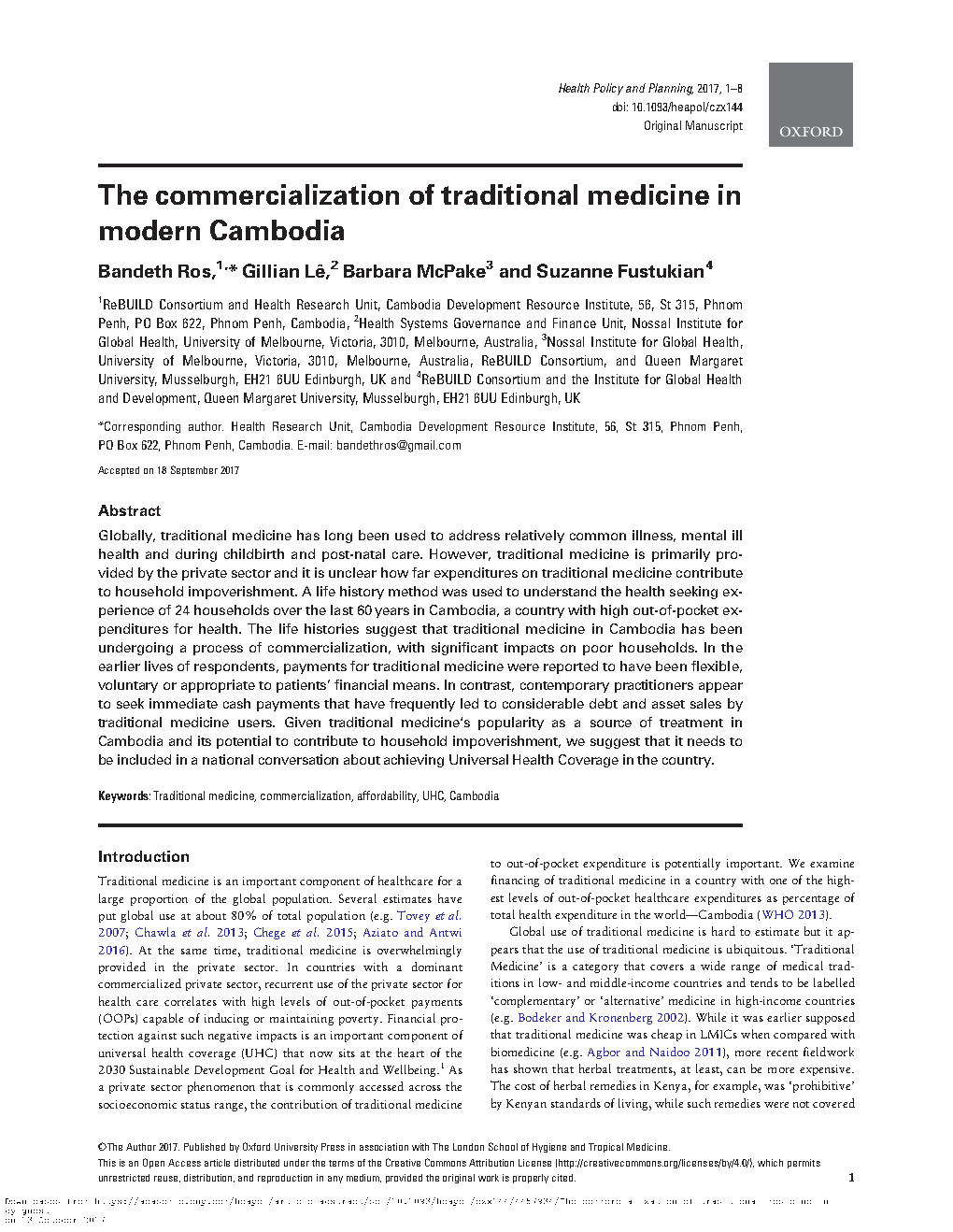The commercialization of traditional medicine in modern Cambodia
Bandeth Ros, Gillian Le, Barbara McPake, and Suzanne Fustukian
Health Policy and Planning, 2017, 1 – 8, czx144, https://doi.org/10.1093/heapol/czx144
This article describes findings from ReBUILD’s research in Cambodia as part of the health financing: Post-conflict access and equity for the poor project, which took place in all four core partner countries. This paper focuses on changes in the traditional medicine sector after Cambodia’s long period of conflict, and how these changes have affected households’ access to services, and the risk of impoverishment.
You can access the full paper here.
Abstract
Globally, traditional medicine has long been used to address relatively common illness, mental ill health and during childbirth and post-natal care. However, traditional medicine is primarily provided by the private sector and it is unclear how far expenditures on traditional medicine contribute to household impoverishment. A life history method was used to understand the health seeking experience of 24 households over the last 60 years in Cambodia, a country with high out-of-pocket expenditures for health. The life histories suggest that traditional medicine in Cambodia has been undergoing a process of commercialization, with significant impacts on poor households. In the earlier lives of respondents, payments for traditional medicine were reported to have been flexible, voluntary or appropriate to patients’ financial means. In contrast, contemporary practitioners appear to seek immediate cash payments that have frequently led to considerable debt and asset sales by traditional medicine users. Given traditional medicine‘s popularity as a source of treatment in Cambodia and its potential to contribute to household impoverishment, we suggest that it needs to be included in a national conversation about achieving Universal Health Coverage in the country.
